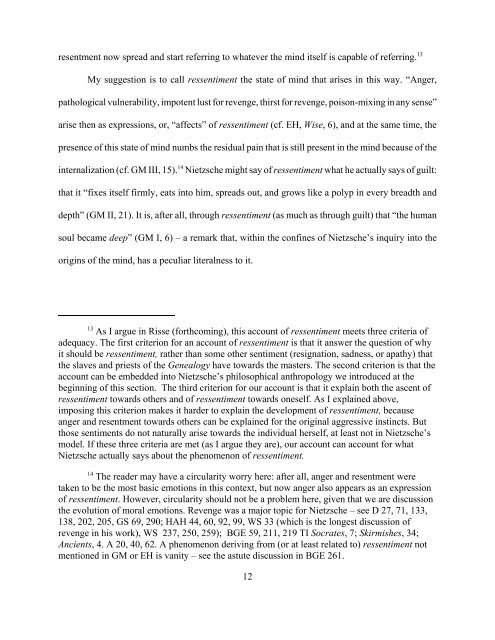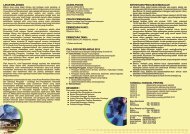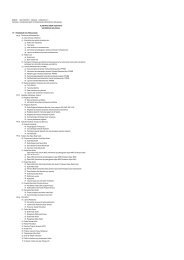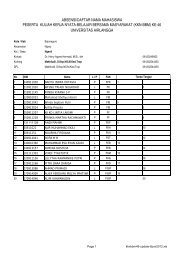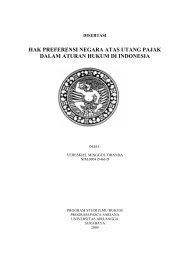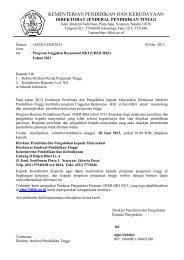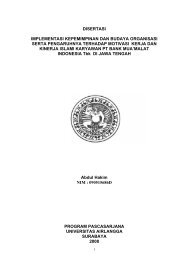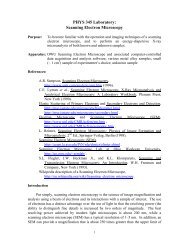Nietzsche's Naturalistic Ethics - UNAIR | E-Book Collection
Nietzsche's Naturalistic Ethics - UNAIR | E-Book Collection
Nietzsche's Naturalistic Ethics - UNAIR | E-Book Collection
You also want an ePaper? Increase the reach of your titles
YUMPU automatically turns print PDFs into web optimized ePapers that Google loves.
esentment now spread and start referring to whatever the mind itself is capable of referring. 13My suggestion is to call ressentiment the state of mind that arises in this way. “Anger,pathological vulnerability, impotent lust for revenge, thirst for revenge, poison-mixing in any sense”arise then as expressions, or, “affects” of ressentiment (cf. EH, Wise, 6), and at the same time, thepresence of this state of mind numbs the residual pain that is still present in the mind because of theinternalization (cf. GM III, 15). 14 Nietzsche might say of ressentiment what he actually says of guilt:that it “fixes itself firmly, eats into him, spreads out, and grows like a polyp in every breadth anddepth” (GM II, 21). It is, after all, through ressentiment (as much as through guilt) that “the humansoul became deep” (GM I, 6) – a remark that, within the confines of Nietzsche’s inquiry into theorigins of the mind, has a peculiar literalness to it.13 As I argue in Risse (forthcoming), this account of ressentiment meets three criteria ofadequacy. The first criterion for an account of ressentiment is that it answer the question of whyit should be ressentiment, rather than some other sentiment (resignation, sadness, or apathy) thatthe slaves and priests of the Genealogy have towards the masters. The second criterion is that theaccount can be embedded into Nietzsche’s philosophical anthropology we introduced at thebeginning of this section. The third criterion for our account is that it explain both the ascent ofressentiment towards others and of ressentiment towards oneself. As I explained above,imposing this criterion makes it harder to explain the development of ressentiment, becauseanger and resentment towards others can be explained for the original aggressive instincts. Butthose sentiments do not naturally arise towards the individual herself, at least not in Nietzsche’smodel. If these three criteria are met (as I argue they are), our account can account for whatNietzsche actually says about the phenomenon of ressentiment.14 The reader may have a circularity worry here: after all, anger and resentment weretaken to be the most basic emotions in this context, but now anger also appears as an expressionof ressentiment. However, circularity should not be a problem here, given that we are discussionthe evolution of moral emotions. Revenge was a major topic for Nietzsche – see D 27, 71, 133,138, 202, 205, GS 69, 290; HAH 44, 60, 92, 99, WS 33 (which is the longest discussion ofrevenge in his work), WS 237, 250, 259); BGE 59, 211, 219 TI Socrates, 7; Skirmishes, 34;Ancients, 4. A 20, 40, 62. A phenomenon deriving from (or at least related to) ressentiment notmentioned in GM or EH is vanity – see the astute discussion in BGE 261.12


